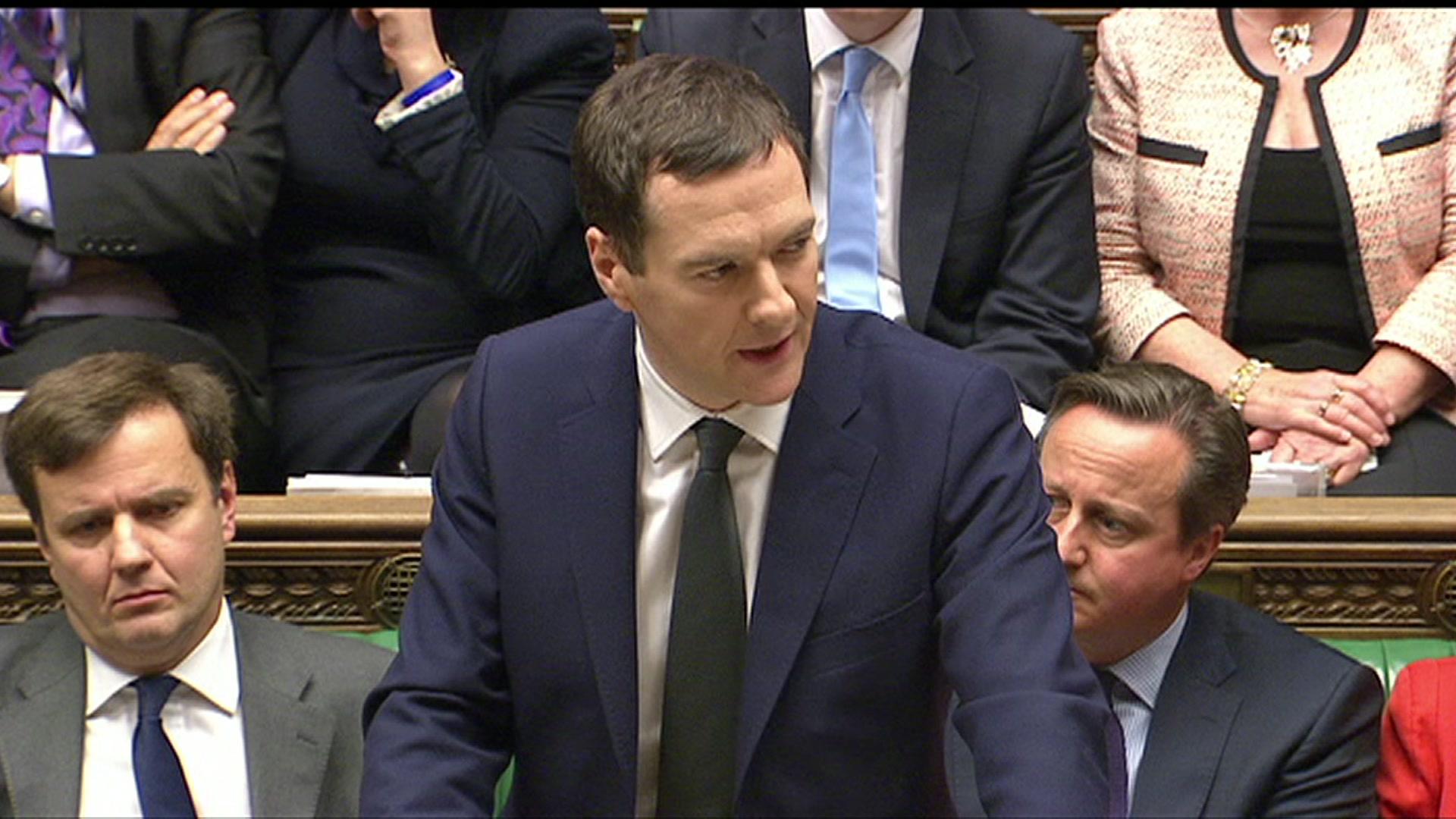First Minister's Questions: back to the 1800s
- Published
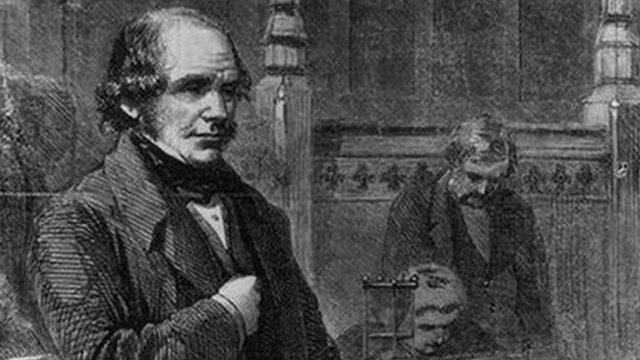
Lord John Russell, 1st Earl Russell - a Liberal - became prime minister in 1865.
And so the Right Honourable Henry John Temple, 3rd Viscount Palmerston KG, GCB, PC, FRS is duly returned as Her Majesty's Prime Minister.
The year is 1865. The newly renamed Liberal Party has won an outstanding election victory, increasing its majority over the Tories.
Later the same year "Gunboat Diplomacy" Palmerston died in office, to be replaced by the 1st Earl Russell, also a Liberal.
I'm sure you want to know the picture in Scotland. The Tories took 14.6% of the vote, retaining eleven seats. The Liberals? Their voting share was 85.4% - gaining them 42 seats.
I recount this detail partly because I enjoy reflections upon political history. But primarily because events in the year 1865 arose during discourse at Holyrood today.
A penchant for blunt speaking
The SNP's Kenny Gibson - who has a penchant for blunt speaking - advised the Conservatives that their share of the Scottish vote in May was their lowest since 1865. How, he said, did they presume to direct Scottish expenditure?
Nicola Sturgeon - who has developed a habit for scrutinising reaction on the Conservative benches - thought she saw a flutter of interest from Jackson Carlaw, the deputy Tory leader.
Was he, she wondered, harking back to that Golden Age of the mid nineteenth century? Or had he been jerked awake by a reference to his once proud party?
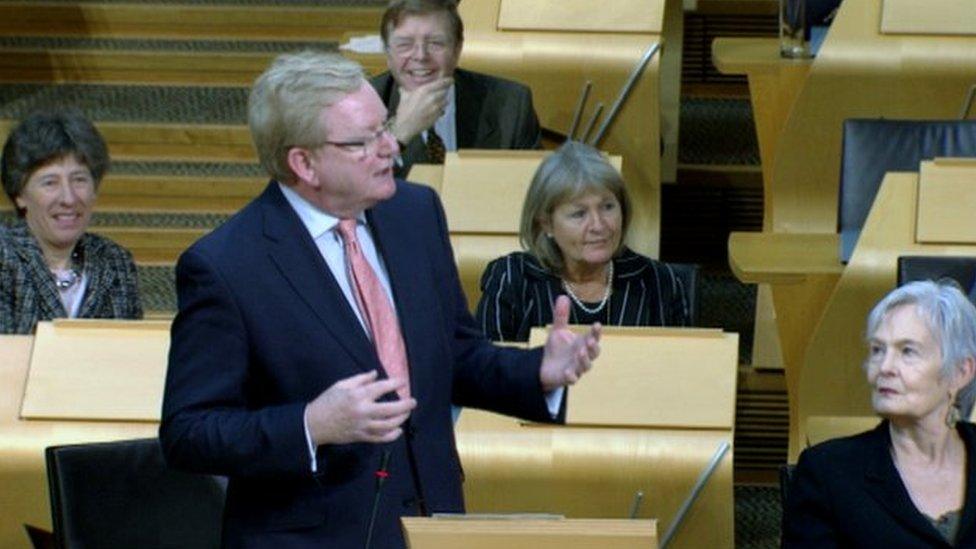
Jackson Carlaw was reminded in the chamber today that the share the of the vote that the Conservatives won in May was their lowest since 1865
Mr Carlaw declined to respond. Perhaps he was eager to return to his slumbers; to dream of the days when every PM was either a little Liberal or else a little Conservative. (I jest of course: he was awake, alert and responsive.)
The Tories may not be in power at Holyrood - but their influence is, of course, substantial owing to the small but important point that they form the UK administration; Scotland's other government.
A powerful parry
And it was Tory policies - and the response thereon - which dominated the exchanges today. Labour's Kezia Dugdale - her tax credit fox now extinct - turned to the topic of North Sea oil revenues.
Why, she said, had the SNP's forecasts proved to be spectacularly over-optimistic? Had they got the sums wrong - or had they been misleading the people of Scotland during the referendum?
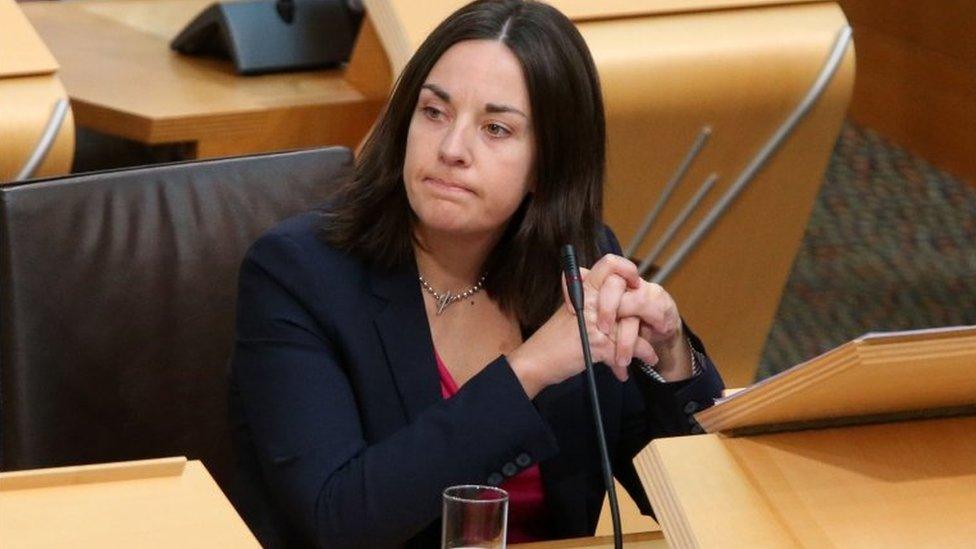
Labour leader Kezia Dugdale asked about North Sea oil revenues during FMQs.
Nicola Sturgeon noted drily that others - including the UKG - had also anticipated higher revenues than are currently flowing. But, mostly, she wanted to sidestep the question. Which she did rather deftly by going on to the attack.
Labour, she said, had demonstrated "breathtaking hypocrisy". Their stance during the referendum, the FM argued, had been to collude with the Tories in keeping Scotland within the Union, thus resulting in continuing Conservative control.
It was a powerful parry. But a parry, nonetheless, rather than a direct answer to the point about oil.
Ms Dugdale retaliated by quoting a former Nationalist adviser, Alex Bell, who had described SNP financial thinking as "deluded". In this game of quotation whist, Ms Sturgeon produced a potential trump card. Labour's former adviser John McTernan, she said, had compared the party to relegation strugglers.
So far it had been shadow boxing about the Tories. Enter the real thing. Ruth Davidson urged the FM to "reverse" cuts in support for home builders and buyers.
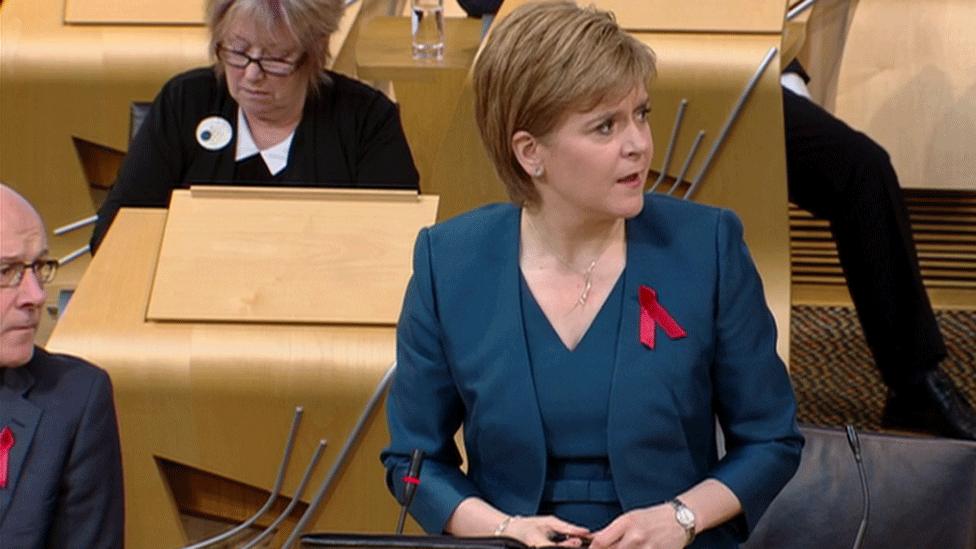
Nicola Sturgeon said Ruth Davidson had an "utter cheek" to ask the government to "reverse" cuts in support for home builders and buyers.
Ms Sturgeon appeared genuinely affronted at this. "What an utter cheek!", she declared. This, she argued, from a scion of the party which was cutting Scotland's budget.
Finally, up rose Willie Rennie - a political heir to Palmerston and Russell. Rather than rhetoric, he pursued a particular theme he has raised previously; arguing the case for extra resources to improve mental health care.
Ms Sturgeon responded neutrally - those budget details have yet to be finalised. But she certainly did not dismiss the argument. And nor did John Swinney later when he delivered a statement to Parliament.
- Published25 November 2015
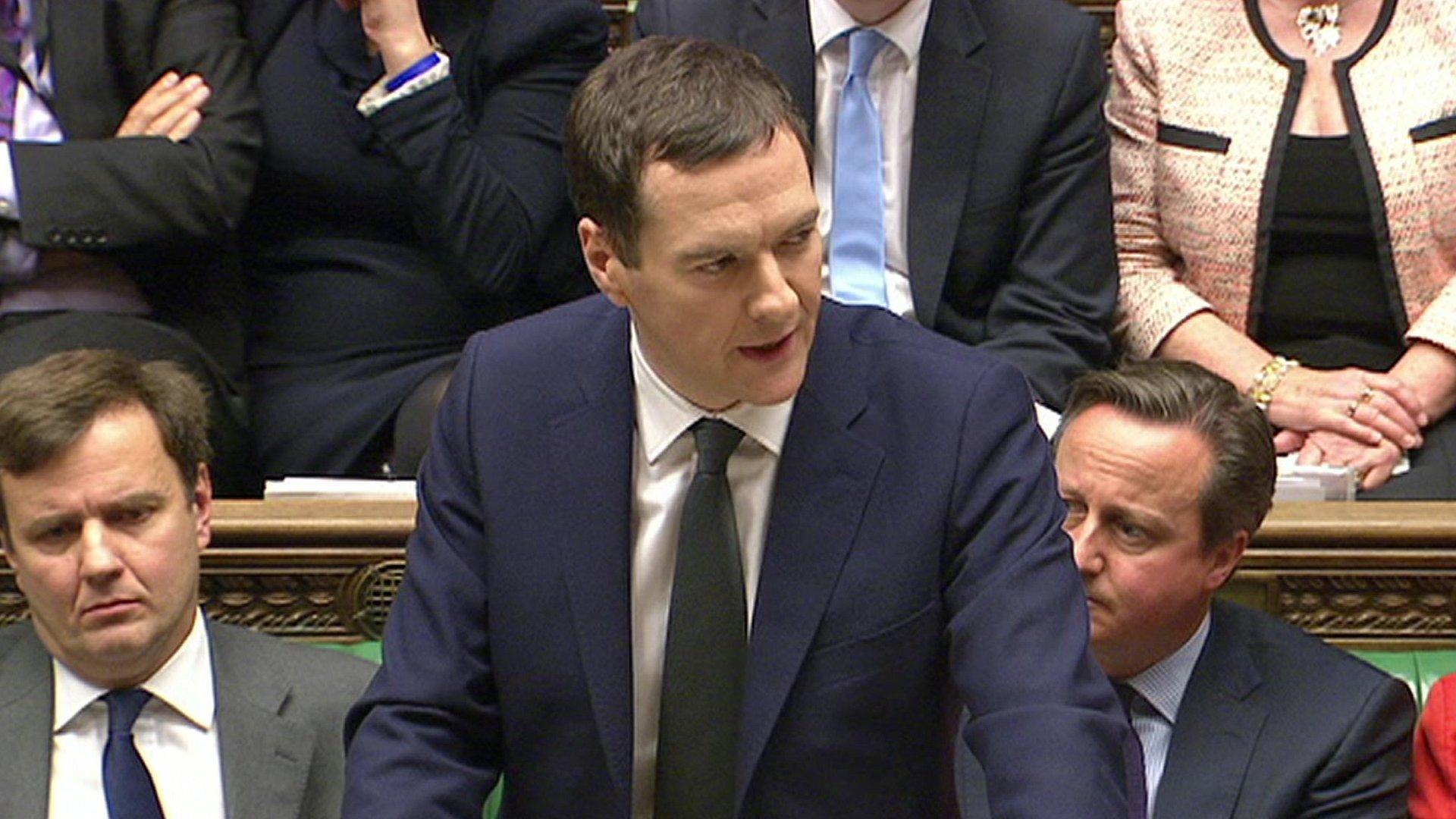
- Published25 November 2015
